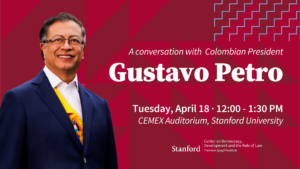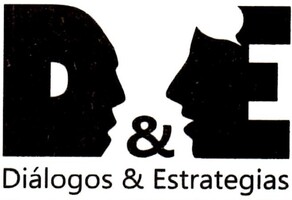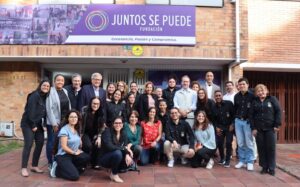Colombian President Gustavo Petro will likely pave the way for a far-right administration in the same way that Iván Duque paved the way for Petro’s own rise to power, says Sergio Guzmán, Director of Colombia Risk Analysis.
The president, who in August 2022 began his mandate with a 56% approval rating and 20% against, now has a disapproval rating of 61%. It’s a fall at breakneck speed. The poll is a reflection of what Colombian voters think of the last two months of Petro’s government. In that period, the president appointed a new, more leftist cabinet, broke the coalition that gave him a majority in Congress and saw all his reform projects fail and the government has also faced numerous scandals, El Pais correspondent Inés Santaeulalia reports:
One of Colombia’s intelligence agencies admitted to illegally tapping the phone of nanny Marelbys Meza, based on the false suspicion that she was part of a vicious criminal syndicate. Moreover, this innocent young woman was subjected to a polygraph test in the basement of a building near the presidential palace, because she was suspected of involvement in the theft of an unspecified sum of money from the home of her employer, Laura Sarabia, who until recently served as Petro’s chief of staff.
 The government was also rocked by the suicide of a colonel who worked in the president’s security detail and audio messages allegedly sent by Colombia’s ambassador to Venezuela, Armando Benedetti, in which he threatens to reveal incriminating evidence about the funding for Petro’s presidential campaign.
The government was also rocked by the suicide of a colonel who worked in the president’s security detail and audio messages allegedly sent by Colombia’s ambassador to Venezuela, Armando Benedetti, in which he threatens to reveal incriminating evidence about the funding for Petro’s presidential campaign.
While it’s too soon to claim that Colombia is shifting to the right — 11 million people voted for Petro just a year ago — it is striking that 49% of respondents in the Invamer poll have a favorable view of Nayib Bukele, the authoritarian president of El Salvador, Santaeulalia adds, Only 10% have a negative opinion of the leader, who has been accused of violating human rights in his war against the gangs.
Iranian President Ebrahim Raisi visited Venezuela, Nicaragua, and Cuba last week, Council on Foreign Relations analyst Elliott Abrams adds. Notably, however, he did not visit in Brazil, Colombia, or Chile, suggesting that democratic leftist governments do not condone Iran’s brutal dictatorship.
The government seems intent on blaming any misstep or obstruction on political enemies, conspiracy theories of a soft coup, and elites refusing to concede privileges. While there is a measure of truth to some of these claims, the Petro administration needs to see the bigger picture, Guzmán writes for Global Americans.
 Colombia already had an episode of backsliding under President Álvaro Uribe, Journal of Democracy contributor Javier Corrales has warned. A new outbreak of backsliding, this time from the left, is not inconceivable for any country, including Colombia, he wrote for Americas Quarterly.
Colombia already had an episode of backsliding under President Álvaro Uribe, Journal of Democracy contributor Javier Corrales has warned. A new outbreak of backsliding, this time from the left, is not inconceivable for any country, including Colombia, he wrote for Americas Quarterly.
After reestablishing diplomatic relations with Venezuelan’s authoritarian government and reopening their shared border, President Petro is now attempting to promote dialogue between the government and the democratic opposition, the Wilson Center reports.
Will President Petro, Colombia’s first leftist leader, win the trust of the Venezuelan opposition? Will his relationship with his Venezuelan counterpart, Nicolás Maduro, give him an opportunity to negotiate concessions that would permit reasonably free and fair elections in 2024? (see above).
 Colombia is one of Latin America’s longest-standing democracies, but it has not been one of its most inclusive, CFR’s Will Freeman observes. Informal barriers to genuinely free and fair competition at different points in time have limited Colombian democracy’s potential. When one set of informal barriers disappeared, another seemed to take its place: collusive power-sharing by traditional parties gave way to paramilitary violence; local party bosses were succeeded by political machines for hire.
Colombia is one of Latin America’s longest-standing democracies, but it has not been one of its most inclusive, CFR’s Will Freeman observes. Informal barriers to genuinely free and fair competition at different points in time have limited Colombian democracy’s potential. When one set of informal barriers disappeared, another seemed to take its place: collusive power-sharing by traditional parties gave way to paramilitary violence; local party bosses were succeeded by political machines for hire.
Colombia under Petro is increasingly at odds with U.S. security and economic interests, says Congressman Mario Díaz-Balart (FL-26), Chairman of the House Appropriations Subcommittee on State, Foreign Operations, and Related Programs. The committee will defer funding for Colombia given its current trajectory and assess the actions of the Petro Government and its relations with Venezuela, Cuba, and Russia, he added.
“Latin America is essential to the global conversation on democracy,” adds Colombian analyst Felipe Estefan. The region’s “enormous culture of democratic roots,” which emerged from the experiences of suffering under dictatorships, has consolidated an active citizenry whose lessons will prove essential to protecting democracy in the world, says Estefan, vice president for Latin America at Luminate. He discusses the challenges in Latin America and the state of democracy in an interview with EL PAÍS.

NED staff and Board members met with Juntos se Puede, a NED grantee working on the Venezuelan migration crisis in Colombia.
Colombia is increasingly becoming a recipient country of capital hailing from non-democratic countries, such as China, Turkey, Saudi Arabia, the United Arab Emirates, Vietnam, and Venezuela, among others, say analysts Martha Aguilera, Sara Torres, and Sergio Guzmán. This is partly due to the global nature of capital investments from sovereign wealth funds, a concerted diversification strategy from some Asian and Middle Eastern countries which President Gustavo Petro encouraged, they write for Global Americans:
Capital investments from these origin countries can be corrosive or constructive to the recipient country’s development, depending on the recipient country’s oversight, traceability, and supervision mechanisms. Corrosive capital is characterized by opaque capital flows that seek to disrupt recipient countries’ institutions to influence or disrupt their economic, political, or social fabric. These investments can flow to ensure access to critical minerals such as copper, lithium, gold, ferronickel, or rare earth, as well as strategic sectors like oil and gas, critical infrastructure, and digital technologies.
From June 19 to 23, National Endowment for Democracy Board members and staff traveled to Medellín and Bogotá, Colombia, to meet with grantees and learn more about NED’s work in the first-ever international board meeting.
“While our staff is constantly traveling and meeting with partners in the field, this was the first time that NED’s Board has traveled together overseas to learn about the critical work of NED partners on the frontlines of democracy,” said Damon Wilson, NED president and chief executive officer.
The group met with Colombia’s Vice President Francia Márquez, Senator Humberto De la Calle, and former President Álvaro Uribe. The Board also met with multiple NED partners as well as representatives from NED’s four core institutes, the International Republican Institute (IRI), the National Democratic Institute (NDI), the Center for International Private Enterprise (CIPE), and the Solidarity Center.

“The visits to Bogotá and Medellín gave Board members a unique perspective on developments in Colombia and the region, and a deeper understanding of the important efforts by NED partners and those of the core institutes,” said NED Chairman Ken Wollack.
Around 2.5 million migrants and refugees from Venezuela have crossed the border to neighboring Colombia, to flee their home country’s crisis in hope of a better life, DW News reports (above). Many have settled just across the border to stay close to home, creating their own settlements. No matter how harsh the conditions there are.







